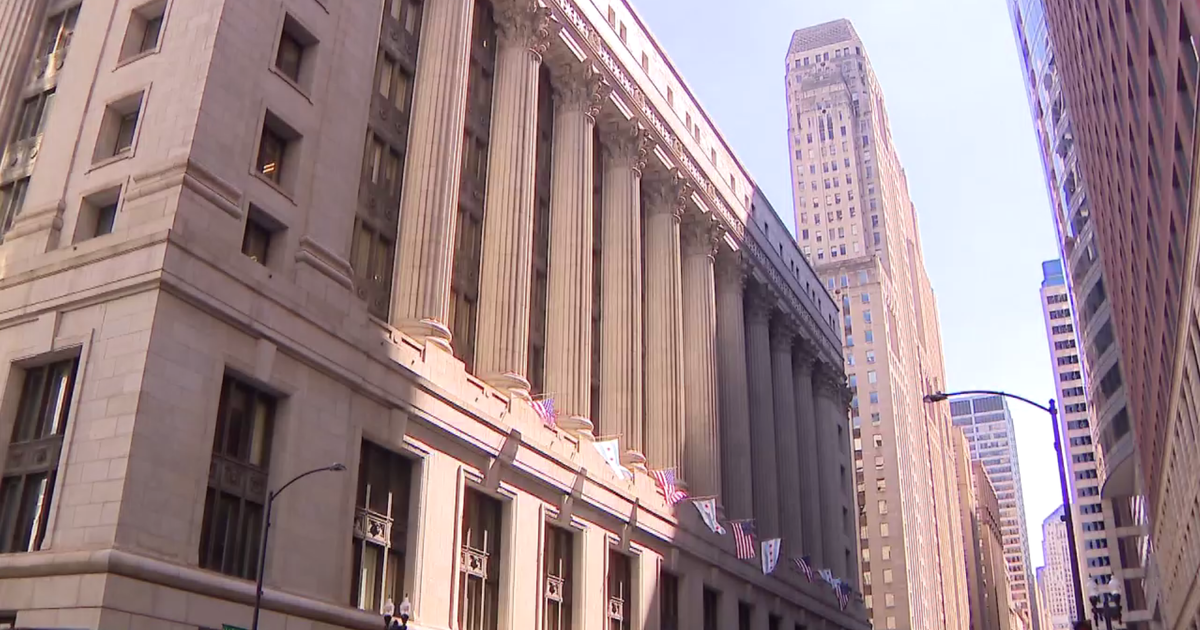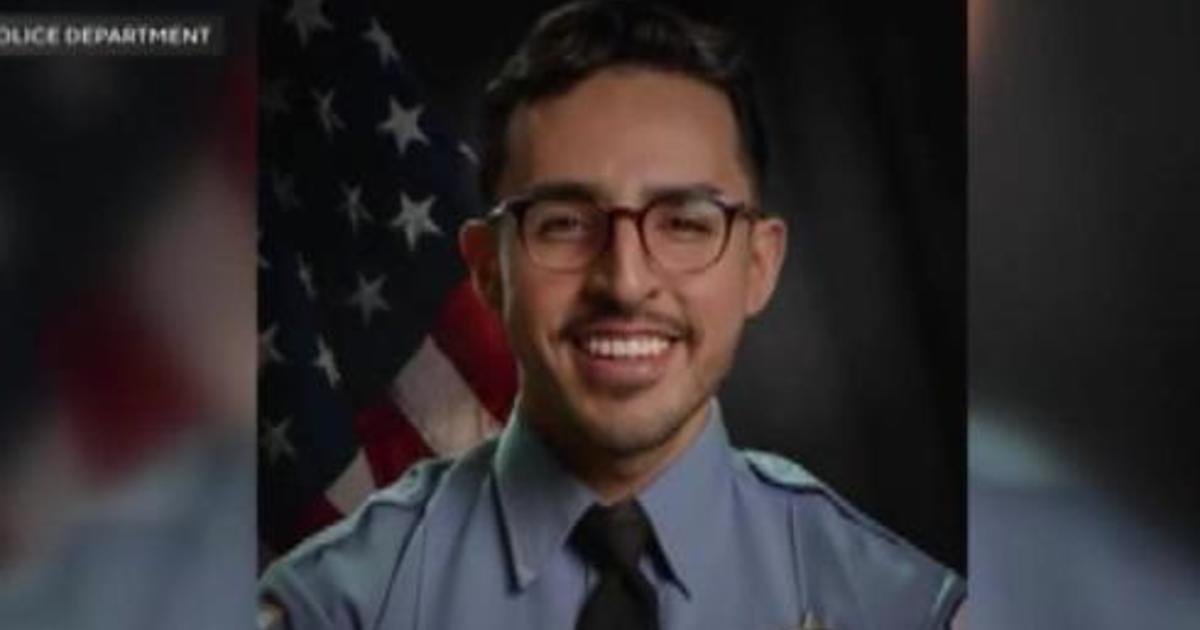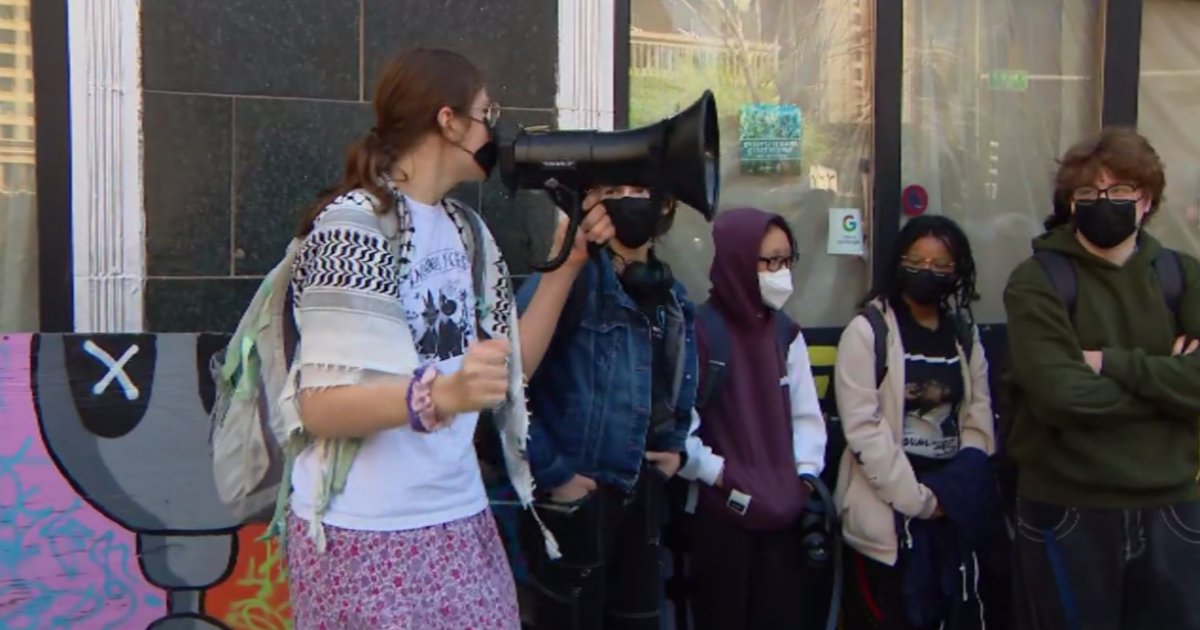'We Are In A Second Surge': Mayor Lori Lightfoot Warns Some Phase 3 Restrictions May Return As COVID-19 Cases Rise Sharply
CHICAGO (CBS) -- Facing a "very concerning increase" in COVID-19 cases not only in Chicago but across the country, Mayor Lori Lightfoot warned that the city might be forced to move back to some Phase 3 restrictions soon if the city can't get get the outbreak under better control.
"Make no mistake. We are in the second surge," Lightfoot said Monday morning.
Lightfoot said, over past two weeks, the number of confirmed daily cases of COVID-19 in Chicago has risen more than 50%, to more than 500 per day. She said that's the highest number of daily cases Chicago has seen since the tail end of the first spike of cases in May.
According to the Chicago Department of Public Health, the city's 7-day average positivity rate is up 29% in the past week, rising from 4.2% to 5.4%. Lightfoot said the city also has seen a "worrying increase" in hospitalizations.
Chicago Public Health Commissioner Dr. Allison Arwady said the COVID-19 hospitalizations in Chicago have risen 25% since late September.
"These numbers are extremely troubling, and are consistent with what we've been seeing across Illinois, and really across the country and world," Lightfoot said.
Also From CBS Chicago:
- SWAT Situation Ends Peacefully After Man Dangled For Hours Off Trump Tower
- Volunteers Boarding Up Homes In Harvey Despite City Wanting Them To Stop
Arwady said new COVID-19 cases have increased dramatically across all age groups, races, and ethnicities. She said the overall rate of new cases is increasing at a rate similar to the start of the first wave of cases in March, April, and May.
"We are sounding this alarm because the increase is real," she said.
Lightfoot said, if the city doesn't see those rates begin to drop soon, she will be forced to reinstate some COVID-19 restrictions that were lifted earlier this year.
"If we don't see a dramatic turnaround in our numbers, and soon, we will not hesitate to take the steps that are necessary to save our city, to save our residents, and even if that means going back to some of our Phase Three restrictions," she said.
The mayor did not specify what Phase 3 restrictions she might put back into place, but under Phase 3 of the city's reopening plan, bars and restaurants were not allowed to serve customers indoors. Many stores and businesses were allowed to be open at 50% capacity, but non-essential businesses were limited to 25% capacity. Theaters, cinemas, and other performing arts venues were closed under Phase 3. Gyms and healthclubs were limited to outdoor classes or one-on-one training. Public gatherings were limited to 10 people or fewer.
The mayor said she realizes resuming some Phase 3 restrictions would be potentially devastating for businesses that already have been struggling during the pandemic, but she said if COVID cases continue to surge, she will have no choice.
"I don't want to go there, particularly for those who are in business; the small businesses who have already suffered through a very difficult year. This would be a tragedy for many of them, but I've got to do what is right to protect us from this virus," she said. "We don't want to have to see us have to go back to the kind of restrictive measures that were commonplace in March, April, and May; but if we need to, we will. I won't hesitate."
Asked what it would take to move Chicago back to more restrictive COVID-19 mitigations, Arwady said she would not wait for the state's threshold of an 8% average positivity rate, but did not specify what metrics she would look for.
Lightfoot and Arwady said the renewed spread of the virus is due in large part from people letting down their guard while among friends and family, and from people spending more time indoors as the weather turns colder.
"COVID thrives in enclosed spaces, and as the weather cools and people spend more time indoors, the chances of outbreaks and new cases go up exponentially," Lightfoot said.
The mayor said, according to data gathered by the city, two-thirds of those who got COVID-19 got it from someone they know; family, friends, or coworkers.
Arwady said people should not be inviting people into their homes except for essential reasons like home health care, childcare, or education. Even in those cases, she stressed you should be wearing a mask and keeping your distance as much as possible.
"This is not the time for non-essential gatherings, period," she said. "If people are coming into your home who do not live there, you must double down on wearing those masks, even within the home. You must double down on keeping that distance. And if it is not essential, do not invite people to your home right now who do not already live there."
Lightfoot said the city also has seen too many instances of large gatherings of unmasked young people going bar-hopping.
"Folks, that has to stop. You are not immune to the effects and the ravages of COVID-19. We see that in the data. You are getting infected," she said. "Your symptoms may be less extreme, but when you get sick, you take that with you. You are affecting your friends and family. You are not immune just because you're young."
Dr. Maximo Brito, an infectious disease specialist at the University of Illinois at Chicago Medical Center, said the hospital's COVID-19 inpatient cases have doubled over the past few weeks.
"We were in the single digits back in at the end of September and now we're about 26 cases in the hospital," Brito told CBS 2 Investigator Megan Hickey.
Brito cautious that the hospital is still far from its peak number during the first height of the pandemic back in the spring – at which point 60 to 70 COVID-19 patients were hospitalized in one day.
But he said it is still something to watch carefully.
Other hospitals are seeing the uptick, too. UChicago Medicine at the University of Chicago said they had 24 COVID-19 inpatients on Monday - a slight uptick from the average of about 15-20 that they saw over the summer.
Brito also emphasized the surge in cases stemming from small group or family gatherings in the home.
"Try to limit the number of people, not because you know the person doesn't mean that the person may not be infected," Brito said. "Remember that this disease can be transmitted by even asymptomatic individuals."
As to returning to some restrictions, Brito said, "It may be worse if we don't put these measures in place early rather than later."
Despite warning that the city could move back to some Phase 3 restrictions due to a second surge of COVID-19, Lightfoot and Arwady defended the plan to reopen Chicago Public Schools for students in pre-k and some special education cluster programs later in the second quarter, while all other students would continue with remote learning.
Lightfoot also said "no definitive decision has been made" to resume in-person classes for pre-k and some special education students, suggesting that Chicago Public Schools could potentially remain all-virtual in the second quarter.
"It takes about a month, or plus, for CPS to move from the being virtual, as we are now, to something different, and so what was announced on Friday was the start of a reengagement process with parents, with students, with people in the school community -- from building principals and staffs, and of course teachers," she said.
CBS 2 Investigator Megan Hickey contributed to this report.



